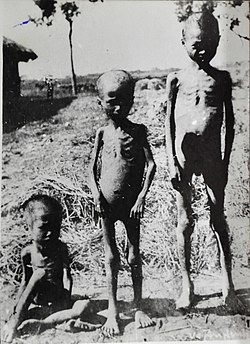User:Loc Vu-Quoc/sandbox
Anchor, jump target
Reference-link template
24.5.27, useful code: highlight text background.
<span style="background-color:yellow">text to highlight here</span>
Text blah blah blah
<ref name="AUTHOR.YEAR"/><sup>:PAGE</sup><!--{{sfn|AUTHOR|YEAR|p=PAGE}}-->
Note-link template
In the main text, use the code below to set up the jump-to link "N.xxxx" and jump-back anchor "NOTE TITLE jump":
Text blah blah blah
<sup>[[#NOTE TITLE |N.xxxx]]</sup><span id="NOTE TITLE jump"></span>
Then in Section NOTES, use the code below for each Note to set up the jump-to anchor "NOTE TITLE" and jump-back link "N.xxxx":
<!-- -->
<span id="NOTE TITLE"></span>
* (↑ [[#NOTE TITLE jump |N.xxxx]]) <i>NOTE TITLE here:</i>
Then write the Note here...
Vietnam, China, and USSR
| Content |
| Contrary to the belief of the Western world (that the Vietnamese generally disliked, and had an inferiority complex against, the Chinese), the Vietnamese tended to be too proud of their history and victories against the Chinese and Mongol invaders over the centuries.
Aware of the Chinese historical "fierce expansionism", an important question for North and South Vietnam was how to safeguard the future of Vietnam as a whole country. While South Vietnam tried to forcibly assimilate Chinese immigrants and their descendants, North Vietnam adopted a "more subtle attitude", moving from "fears" during the Chiang Kai-shek era to "solidarity and friendship" after the communist had won in 1949. The Geneva agreements, while satisfying for China, left the North Vietnamese to be content with the prospect of reunifying with South Vietnam upon an election. After the failure of the agrarian reform, there was a concern of the presence of many Chinese soldiers and civilians in North Vietnam. To keep Chinese economic aid flowing, Ho Chi Minh initially maintained a balance between Peking (Beijing) and Moscow, but subsequently tilted toward Moscow after Peking admitted that it could not help carry out a semi-heavy industrialization. In September 1960, Le Duan, then Secretary-General of the Party, put forward a three-point program: (1) Support Moscow in any Sino-Soviet dispute, (2) Five-year plan (1961–1965) to socialize North Vietnam, (3) Progressive and peaceful reunification of the two Vietnams. |
Famine, conquest of rice
| Content |
| The reconquest of the South entrusted to Le Duan could then be understood as "a struggle unleashed simply for the purpose of conquering rice", without which the five-year plan most certainly would fail. For many Southerners, their reaction against the Diem regime, rather than the love for Communism, enabled this subversion war to continue. The enormous economic benefit that North Vietnam would harvest from the national reunification was the primary reason for the war.
North Vietnam was fighting to secure rice, and thus the war was, from the purely national point of view, a legitimate one. Ngo Dinh Diem on the other hand refused to provide aid to alleviate the famine in the North. |
Nguyen Ngoc Bich
Wikipedia
- Draft:Nguyen Ngoc Bich. See Nguyen Ngoc Bich (1911-1966): A Biography.
- User:Egm4313.s12/Draft:Nguyen Ngoc Bich, User:Egm4313.s12/Nguyen_Ngoc_Bich_(CZ)
Citizendium
Other stuff saved
Pham Van Bach
Đồng chí Phạm Văn Bạch – Một trí thức lỗi lạc của dân tộc Việt Nam, Trang Tin Điện Tử, Đảng Bộ Thành Phố Hồ Chí Minh, Cập nhật: 21:20 17-06-2021. Archive.is 2024.11.4
Gaza War
“This Is Just Terrorism”: Israel Bombs World Heritage Site in Lebanon, Threatens Major Hospital, October 24, 2024.

